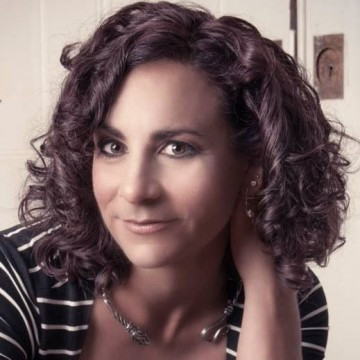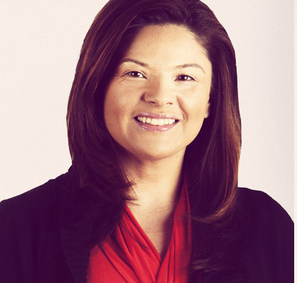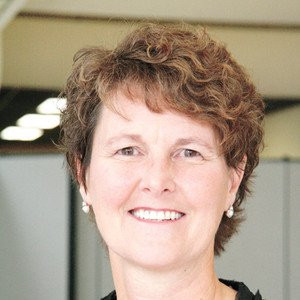It’s All About Education: An Urban Preschool Grounded in Nature
Wednesday, June 17, 2015
Just off the Branch Avenue exit of route 146 in Providence, there is an outdoor classroom. On the banks of the Woonasquatucket River, preschoolers are building their language and pre-literacy proficiency, learning about the natural world and scientific observation, and acquiring the skills that will help them to be successful in life. Sharing space with the Wanskuck Clubhouse of the Boys & Girls Club of Providence and the Rhode Island School for the Deaf is a unique preschool program called Mariposa.
Centered on play, social-emotional growth, and an appreciation for nature, Mariposa serves 36 children in their “Pine Forest Preschool” and their “Wildflower Pre-Kindergarten.” Founded in 2007, Mariposa is dedicated to fostering a vibrant, inclusive early childhood community that engages children and their families as partners in the learning process. Although their curriculum is aligned with the RI Early Learning and Development Standards, Mariposa is unique in its approach, which integrates an engagement with nature and an atmosphere of mutual respect into every activity. They hold a five-star rating from BrightStars, and they often share their techniques with other early childhood professionals.
Zoe McGrath, director of Mariposa, emphasizes that the school is committed to providing access to all children, regardless of their socioeconomic background. Their classes are quite diverse, both in racial and ethnic makeup as well as family income levels. While the preschool classroom is open to any families who are interested, the Pre-Kindergarten classroom is one of the founding classrooms in the Rhode Island Department of Education (RIDE)’s statewide Pre-K initiative, and as such, it has certain requirements. Through stories, songs, books, and lots of opportunities for hands-on experiential learning, Mariposa helps its students to not only meet widely held expectations of child development, but to exceed them.
GET THE LATEST BREAKING NEWS HERE -- SIGN UP FOR GOLOCAL FREE DAILY EBLASTThe pre-kindergarten classroom receives state funding, so all of the students enrolled must be at least four years old and must live in Providence. RIDE guidelines stipulate that the classroom must consist of nine boys and nine girls; fifteen of the eighteen children enrolled in the class must be living at or below 185% of the federal poverty level or FPL ($29,470.50 for a family of two, $44,862.50 for a family of four). Enrollment is through lottery, with applications available on the RIDE website.
While the pre-kindergarten classroom follows the public school calendar, serving students 180 days each year and offering a standard six hour school day from 8:30am – 2:30pm, the preschool classroom serves primarily three and four year olds and runs all year from 7:00am to 5:00pm. In the preschool classroom, there are children whose families pay full tuition; children whose families receive scholarships and financial assistance from Mariposa; and children whose families receive state assistance through the child care subsidy program. Child care subsidies are available for families with incomes up to 180% FPL; 8991 children in Rhode Island, 3258 of them in Providence, received child care subsidies in 2014.
All of these statistics melt away when you visit Mariposa. The students are, of course adorable, and they clearly have caring, close relationships with both the faculty and each other. They are enthusiastically engaged with their environment, both inside the classroom and outdoors. The playground incorporates many natural elements such as stumps and sticks, and the garden is a source of genuine pride: “I tasted lettuce from our garden!” The week that I was there, the children had helped to rescue a baby bird that had fallen from the nest.
Ms. McGrath emphasizes that, while Mariposa is a nature-based program, it is also an urban program: “We’re not on a farm; we’re next to a bus stop, two gas stations, and a highway.” They help students and their families to take advantage of the nature that abounds even in an urban environment, hosting picnics in the meadow adjacent to the Boys & Girls Club and in the natural seating area they’ve created alongside the river. In addition, the school has nature backpacks that families can borrow, stocked with items one might need on a hike: maps, field guides, binoculars, a camera, a notebook and pencils, even snacks.
Mariposa’s community partnerships with Brown University, the Providence Children’s Museum, South Side Community Land Trust, Roger Williams Park Zoo, Antioch University, and others help to enrich students’ experiences. Mariposa also solicits the support of community members through contributions of funds to provide operating expenses and scholarships and in-kind donations.
Mariposa currently provides two other branches of services in addition to their early childhood programs: family-child programs and professional development. Family-child programs include workshops for parents, assisting families in accessing community resources, and helping them to navigate the school system as they leave Mariposa. Professional development programs are provided by Mariposa’s faculty to other early childhood professionals, allowing them to share their knowledge and success with colleagues throughout the state.
Mariposa offers an unparalleled early childhood experience for the 36 children they serve. Imagine the impact if all families were able to enroll their children in a high-quality early childhood environment based on play, social emotional growth and an appreciation for nature. What if every parent, regardless of his or her income, had access to such a program for his or her child? If that were the case, perhaps we would finally be taking steps to eliminate the achievement gap.
Lauri Lee is an independent consultant with over twenty years of experience in both public and private education, with learners from infants through adults. With experience in teaching, marketing, communications, social media, development, admissions, and technology, she is able to synthesize many of the issues facing our educational system today. She lives in Providence, RI with her family, a big dog, and a small cat. She blogs at http://www.AllAboutEducation.net; and you can follow her on Twitter at @fridovichlee.
Related Slideshow: RI Experts on the Biggest Issues Facing Public Education
On Friday November 22, the Hassenfeld Institute for Public Leadership at Bryant University, the Latino Policy Institute of Roger Williams University, the Rhode Island Association of School Committees, the Providence Student Union, and RI-CAN: Rhode Island Campaign for Achievement Now will host Rhode Island leaders in the public and nonprofit sectors for a symposium on "the civil rights issue of the 21st century, adequacy and equity and the State of Education in Rhode Island."
Weighing in on the the "three biggest factors" facing education in the state today are symposium participatnts Gary Sasse, Founding Director of the Hassenfeld Institute for Leadership; Christine Lopes Metcalfe, Executive Director of RI-CAN; Anna Cano-Morales, Chairwoman of the Board of Trustees, Central Falls Public Schools and Director, Latino Policy Institute at Roger Williams University; Tim Duffy, Executive Director, RI Association of School Committees; and Deborah Cylke, Superintendent of Pawtucket Public Schools.
Related Articles
- It’s All About Education: Inequities in the College Admissions Process
- It’s All About Education: A Recipe for Disaster - Common Core Standards for Kindergarten
- It’s All About Education: Is the American Dream a Pipe Dream?
- It’s All About Education: How Vaccination Affects Schools – and Society
- It’s All About Education: Changing Lives with School Lunches
- It’s All About Education: Free College Tuition - Why Just Community College?
- It’s All About Education: Schools that Harness the Power of Nature
- It’s All About Education: The High Cost of Higher Education
- It’s All About Education: The Rise in Kindergarten Readiness Testing
- It’s All About Education: Some of Education’s Best Ideas from 2014
- It’s All About Education: Social Promotion is Not the Problem
- It’s All About Education: How Breakfast Could Help Close the Achievement Gap
- It’s All About Education: Choosing the Right School for Your Child
- It’s All About Education: Can Education Drive Social Change?
- It’s All About Education: Re-Imagining Our Educational System
- It’s All About Education: High-Quality Early Learning: Necessary For All
- It’s All About Education: The Arts, Education, and Transformation
- It’s All About Education: A Broader Definition of Education
- It’s All About Education: How Poverty Impacts Brain Development and Learning
- It’s All About Education: Making a Commitment to Rhode Island’s Children
- It’s All About Education: After School Programs Make a Difference
- It’s All About Education: Learning Life Skills at Hope High
- It’s All About Education: Failure to Launch - It’s Not Just a Movie
- It’s All About Education: School Choice - Vouchers and Tax-Credit Scholarships Don’t Pay
- It’s All About Education: Reading for Pleasure Predicts Academic Success













